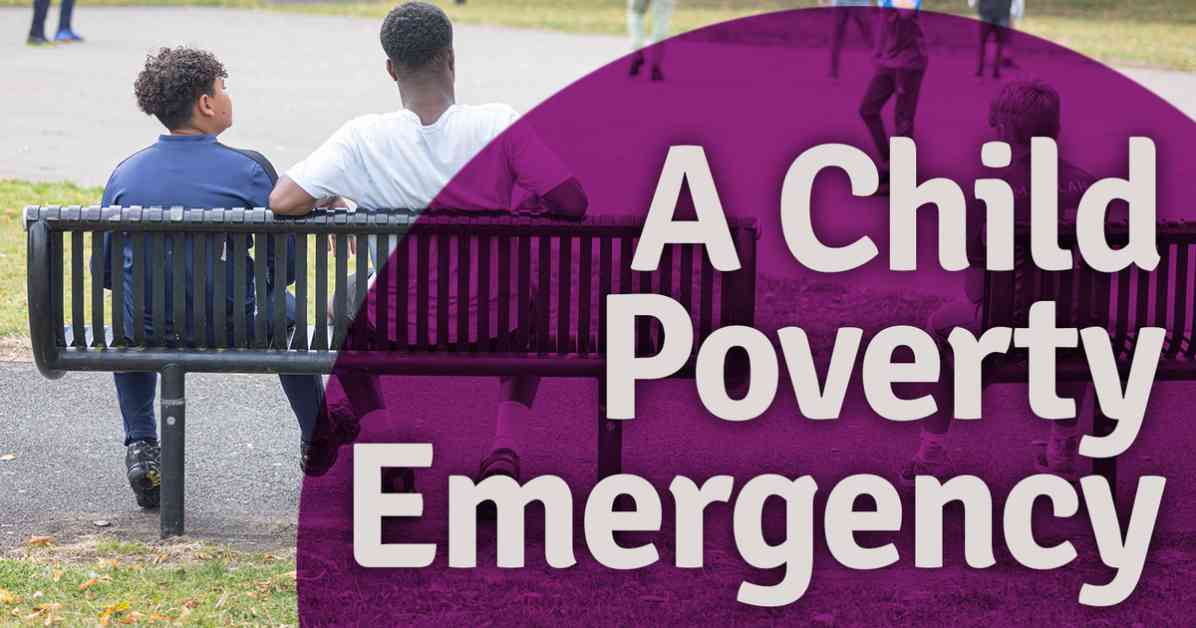Ministers Urged to Act Now to Address Birmingham Child Poverty Crisis
As rain poured down outside Liverpool Lime Street railway station, I made my way to the Labour Party Conference with a sense of urgency. Armed with a summary of our new report ‘Birmingham: A Child Poverty Emergency’, I was determined to seek out key ministers, including Education Secretary Bridget Phillipson and Work and Pensions Secretary Liz Kendall, to address the pressing issue of child poverty in Birmingham.
The current state of child poverty in Birmingham is dire, with rates at their highest this century and still on the rise. The outgoing Tories have left behind a mess that urgently needs to be addressed. Our report outlines a series of key asks, including ending the two-child benefit cap, providing free school meals to every child in poverty, and creating a city “aid bank” for essential baby and child items.
During a conference fringe event organized by the Child Poverty Action Group, Minister Liz Kendall acknowledged the urgent need to abolish the two-child benefit cap, which is pushing more children into poverty every day. She emphasized the importance of giving people the financial support they need to lift them out of poverty, citing the success in reducing pensioner poverty by increasing pensions.
The panel discussion highlighted the devastating impact of child poverty on families, underscoring the need for immediate action. Kendall assured attendees that a child poverty taskforce would be established to address the issue, with a launch document expected soon and findings to be reported in the spring.
Despite some interim measures being taken, such as the introduction of universal breakfast clubs in primary schools, there is still much work to be done. Child poverty continues to plague Birmingham, and urgent changes are needed to reverse this troubling trend.
Subheadings
The Urgent Need for Action
Challenges and Solutions
A Call to Action
Education Secretary Bridget Phillipson also addressed the issue of child poverty, affirming the government’s commitment to tackling this pressing issue. She acknowledged the challenges faced by children and young people, including a lack of emotional support, high absence rates in schools, and insufficient child care provision.
During a discussion on building a bright future for children and young people, Phillipson emphasized the importance of ensuring that no child grows up in poverty in modern Britain. She expressed her dedication to tackling child poverty and creating a better future for all children.
As I handed over our report on Birmingham to Phillipson, I pressed her on the immediate need to end the two-child benefit cap and urged her to visit Birmingham to witness the impact firsthand. She assured me that the cap was under review as part of a broader examination of the social security system and pledged that every region would receive a visit from the taskforce.
While progress is being made, the reality is that Birmingham is still in the grips of a child poverty crisis that demands urgent attention. The time for action is now, and ministers must take decisive steps to address this pressing issue.
In Conclusion
The urgency of the child poverty crisis in Birmingham cannot be understated. Ministers must act decisively to implement the necessary changes outlined in our report to lift children out of poverty and create a brighter future for all. The time for words is over; it is time for action. Birmingham is waiting, hoping, and counting on our leaders to make a difference. Let’s not let them down.



























